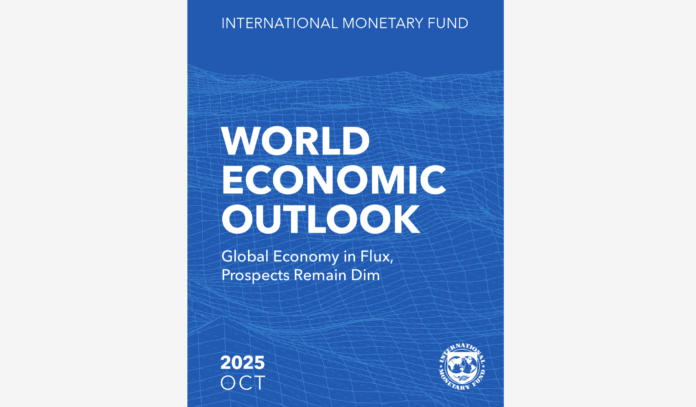The International Monetary Fund (IMF) has revised down its global growth forecasts in its October 2025 World Economic Outlook (WEO), reflecting the growing impact of trade protectionism, policy uncertainty, and weakening fundamentals across major economies. Global GDP growth is now expected to slow from 3.3 percent in 2024 to 3.2 percent in 2025, and further to 3.1 percent in 2026—a cumulative 0.2 percentage point drop from earlier pre-policy shift projections.
While some tariff rollbacks since April have eased pressure, the IMF warns that recent fiscal stimulus in advanced economies and widespread cuts to international aid are amplifying long-term risks. Growth in advanced economies is forecast at a modest 1.5 percent in 2025–2026, while emerging markets, including the Philippines, are expected to grow at just over 4 percent, with risks skewed to the downside.
The slowdown poses significant implications for developing economies. As world trade volume is projected to rise by only 2.9 percent in 2025–2026, down from 3.5 percent in 2024, trade fragmentation and tightening immigration policies in richer countries could restrict growth channels critical to economies like the Philippines. Moreover, inflation divergence—high in the U.S. but subdued in much of Asia—adds complexity to monetary policy responses in these regions.
The IMF calls on policymakers, especially in emerging economies, to accelerate structural reforms—including investments in digitalization, labor market flexibility, and institutional strengthening—to bolster resilience in an increasingly fragmented global economy. For low-income and aid-dependent countries, like parts of Southeast Asia, domestic resource mobilization is seen as essential amid shrinking foreign assistance.
Risks remain tilted to the downside, including potential shocks from restrictive immigration, financial market volatility, or a sudden correction in tech stocks linked to artificial intelligence. The report urges credible, coordinated, and forward-looking policy action to rebuild confidence and support sustainable, inclusive growth.







